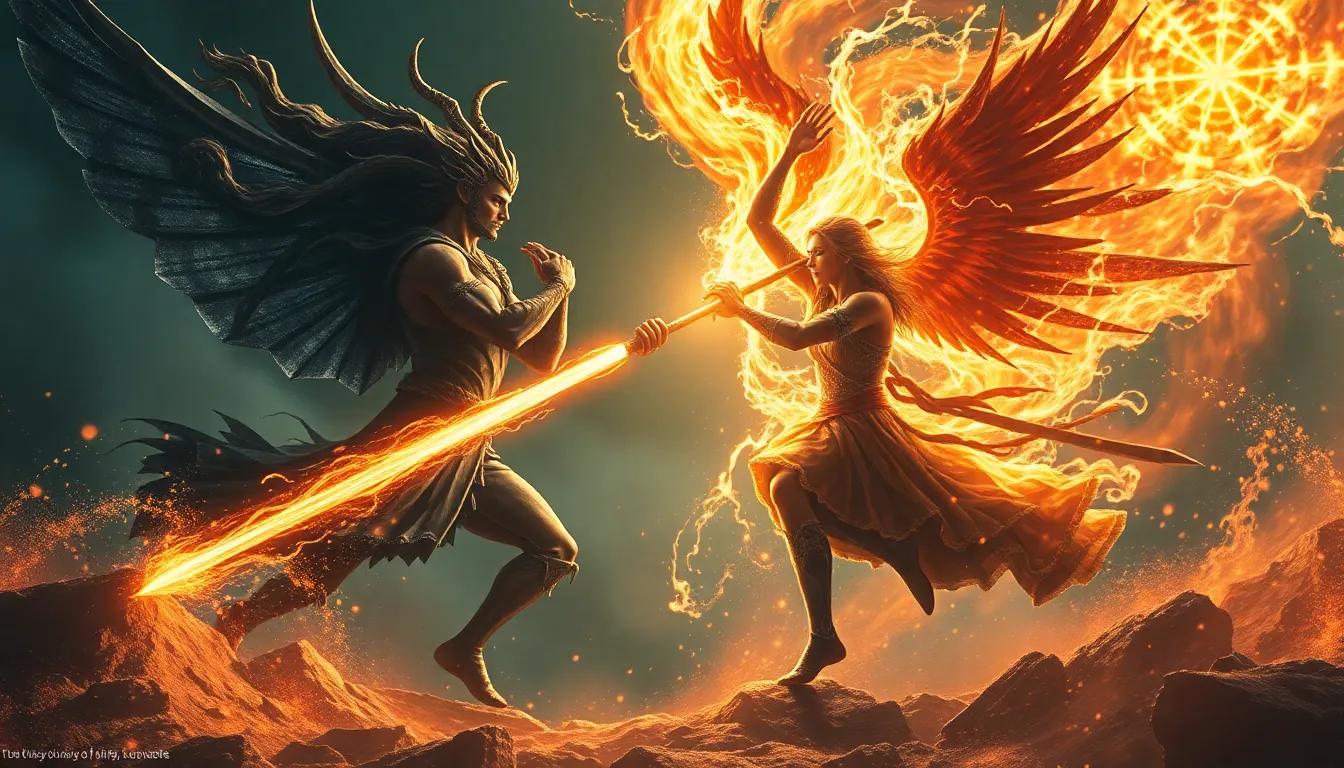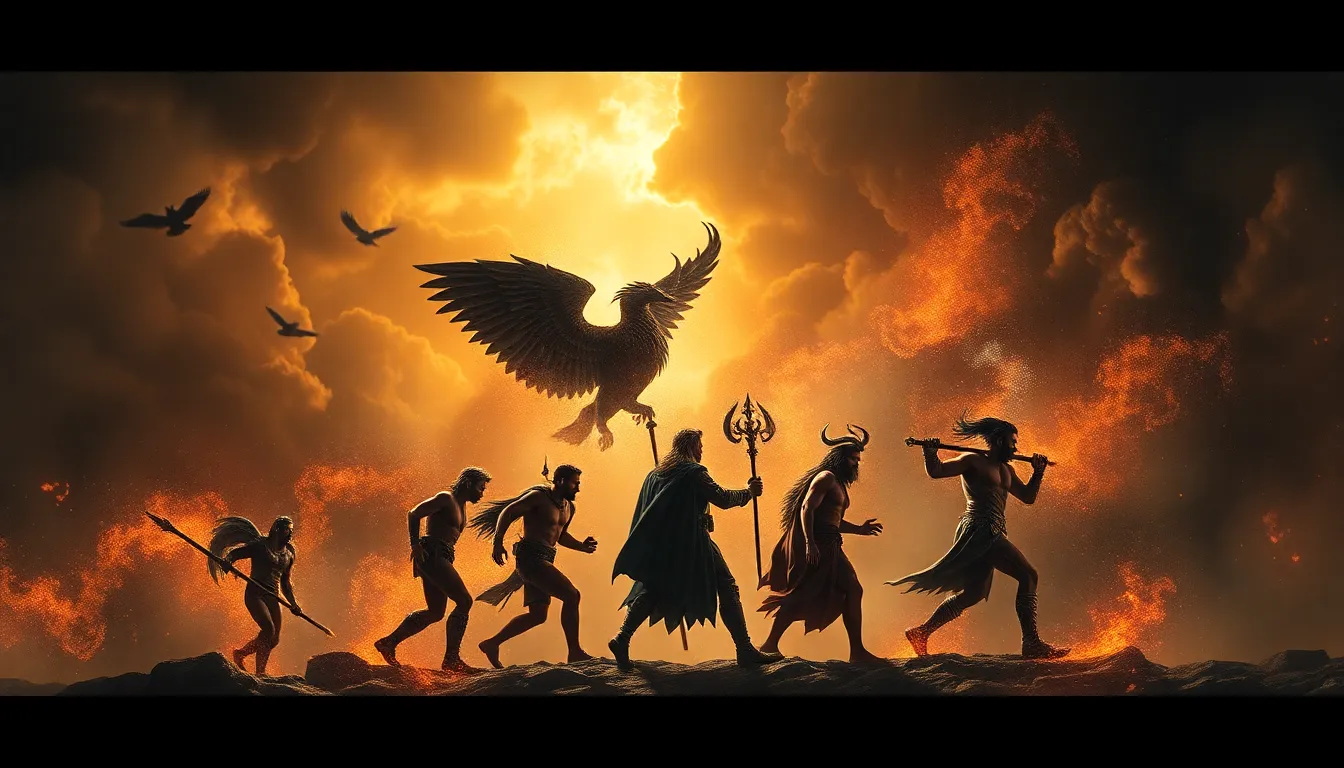African Mythology: Exploring the Unknown and Unseen
Introduction
African mythology is a rich and diverse tapestry of stories, beliefs, and traditions that have been passed down through generations by oral and written transmission. These myths encompass a vast array of themes, including creation and origins, deities and spirits, sacred animals and plants, tricksters and heroes, and the profound interconnectedness between humans and the natural world. African mythology serves as a window into the cultural heritage and collective unconscious of African societies, providing insights into their history, values, and beliefs about the cosmos. By delving into the unknown and unseen realms of African mythology, we gain invaluable knowledge not only about the continent and its people but also about the human experience as a whole.
The Diversity of African Mythology
The African continent is a vast and multifaceted landmass that encompasses an array of cultures, languages, and ethnic groups. This cultural diversity is mirrored in the diversity of African mythology, which varies significantly from region to region and community to community. While certain motifs and themes recur across different African mythologies, each group has its own unique stories and perspectives that reflect their distinct experiences and environments. This heterogeneity makes African mythology a rich treasure trove of knowledge and creativity that can provide us with a deeper understanding of the human imagination and the diversity of human experience.
Myths of Creation and Origin
African creation myths narrate the beginnings of the universe, including the genesis of the world, humans, and other beings. In many African cosmologies, the world is believed to have been created by one or several powerful deities or supernatural beings. These deities often have complex relationships with each other and interact with the world and humanity in various ways. The myths of creation and origin provide insights into African beliefs about the fundamental structure of reality, the role of divine powers in shaping the world, and the origins of human existence.
Deities and Spirits
African mythology is replete with an array of deities and spirits that play vital roles in the affairs of the world. Many African myths describe a complex pantheon of gods and goddesses, each of whom has their own powers, responsibilities, and domains. These deities often represent different aspects of nature, such as the sky, rain, thunder, the earth, the oceans, and the forest. Alongside these gods and goddesses exist various spirits and other supernatural beings, including benevolent ancestors, nature spirits, and malevolent demons that can interact with and have influence over the lives of humans.
Sacred Animals and Plants
In African mythology, certain animals and plants are believed to possess sacred or spiritual significance. These animals and plants are often associated with particular deities, spirits, or natural phenomena. They may be seen as symbols of power, wisdom, protection, or fertility. Many African myths feature interactions between humans and the animal world, where animals serve as messengers, helpers, or guides for the protagonists. The presence of sacred animals and plants in African mythology highlights the deep connection between humans and the natural environment in African traditions.
Tricksters and Heroes
African mythology is replete with trickster figures who embody cunning, wit, and a mischievous nature. These tricksters often play a dual role, serving as both benevolent and malevolent forces within their respective mythologies. They may use their trickery to outsmart opponents, achieve their goals, or teach valuable lessons to others. Alongside tricksters, African myths also feature heroic figures who embody strength, courage, and morality. These heroes often embark on epic quests to overcome challenges, defeat evil, or bring about positive change within their communities.
The Role of Storytelling in African Mythology
Storytelling plays a pivotal role in African mythology. Myths and legends are passed down through generations through oral traditions, where storytellers captivate audiences with their vivid narratives and intricate tales. These stories serve as a means of preserving cultural heritage, transmitting moral values, and educating younger generations about the history and beliefs of their ancestors. Storytelling performances often involve music, dance, and other forms of artistic expression, creating a multisensory experience that immerses listeners in the world of African mythology.
Mythology and Cultural Identity
African mythology is deeply intertwined with the cultural identity of African societies. The myths, legends, and beliefs that have been passed down through generations shape the collective consciousness of African peoples and provide a sense of belonging and shared heritage. These stories reflect the values, beliefs, and experiences of African communities and serve as a source of inspiration, guidance, and wisdom for individuals and societies alike. By exploring the rich tapestry of African mythology, we gain insights into the cultural heritage and collective identity of African peoples.
Contemporary Manifestations of African Mythology
African mythology continues to influence contemporary African culture and society in various ways. Elements of African myths and legends can be found in literature, art, music, and other forms of creative expression. Modern African writers and artists draw inspiration from traditional mythologies to create works that explore contemporary issues while also preserving and celebrating African cultural heritage. Additionally, African mythology continues to play a role in religious practices, traditional ceremonies, and cultural events, ensuring its ongoing relevance and significance within African societies.
Conclusion
African mythology is a vast and ever-evolving realm of stories, beliefs, and traditions that offers a profound window into the cultural heritage and collective consciousness of African peoples. Through its diverse array of creation myths, deities and spirits, sacred animals and plants, tricksters and heroes, African mythology provides insights into the fundamental questions of existence, the nature of the cosmos, and the complexities of the human experience. By exploring the unknown and unseen realms of African mythology, we not only gain knowledge about a rich and fascinating continent but also gain a deeper understanding of ourselves and our place in the world.
Frequently Asked Questions (FAQs)
Q: What is the most well-known African myth?
A: The story of Anansi, the spider trickster, is one of the most well-known and widely told African myths.
Q: Are there any African myths that have been adapted into popular culture?
A: Yes, many African myths and legends have been adapted into popular culture through films, television shows, and other forms of media.
Q: How can I learn more about African mythology?
A: You can learn more about African mythology by reading books, attending lectures, or visiting museums dedicated to African culture and history.



